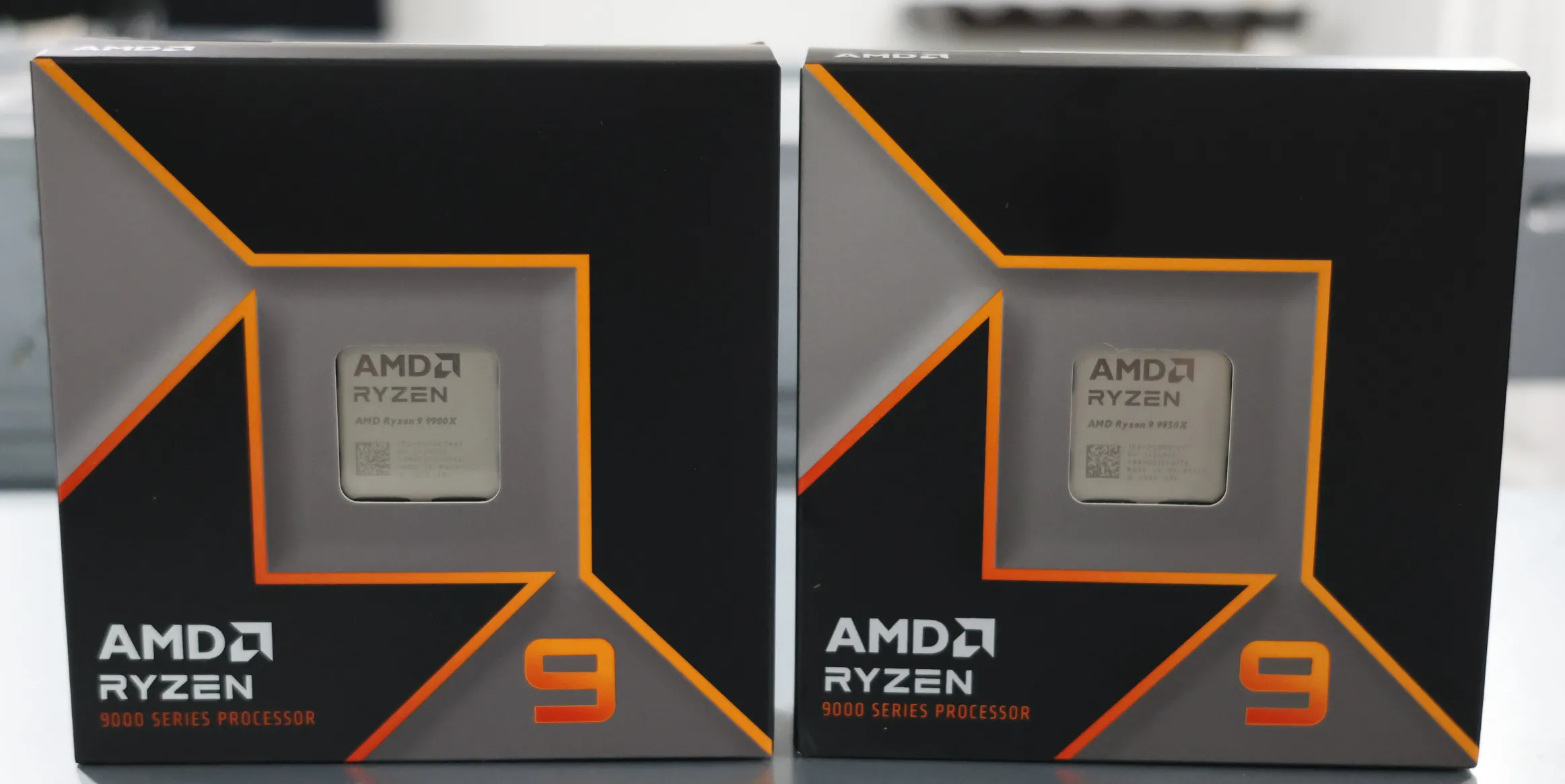cross-posted from: https://lemmy.ml/post/19143537
Last Wednesday was the review embargo for the Ryzen 5 9600X and Ryzen 7 9700X Zen 5 desktop processors that proved to be very exciting for Linux workloads from developers to creators to AVX-512 embracing AI and HPC workloads. Today the review embargo lifts on the Ryzen 9 9900X and Ryzen 9 9950X and as expected given the prior 6-core/8-core tests: these new chips are wild! The Ryzen 9 9900X and Ryzen 9 9950X are fabulous processors for those engaging in heavy real-world Linux workloads with excellent performance uplift and stunning power efficiency.
I have been very much enjoying my time testing out AMD’s Zen 5 wares from the Ryzen AI 300 series to the Ryzen 9000 series. The Ryzen 5 9600X / Ryzen 7 9700X were great for whetting my appetite while awaiting the Ryzen 9 9900 series. I had been very much enjoying them to the extent I was rather surprised myself last week when hearing of some reviewers not finding much excitement out of these new Zen 5 processors but typically those just looking at Windows gaming performance or running only a few canned/synthetic benchmarks. Following the Ryzen 5 9600X and Ryzen 7 9700X Linux testing when the Ryzen 9 9900X/9950X arrived, they were put immediately to my gauntlet of hundreds of Linux benchmarks and indeed living up to expectations.



So … all reports of the CPUs performance being removed or way below expectations are just due to windows. As always.
Based and true
I hate reviewers doing that. It’s like buying a sports car and rating it on what you are legally allowed to drive. It doesn’t make any sense. Also, windows performance will vary extremely depending on privacy settings, edition and country (eg. due to the EUs privacy regulations). A minimal Arch setup will ALWAYS be the same in every aspect. No new removed no one needs. No performance-wasting malware by default. Just an OS.
Reviewers like Gamers Nexus and Hardware Unboxed serve the Windows gamer market first. If you game on Windows you want to know the best price/performance for your purposes. Benchmarking kernel compiles and database transactions on Linux has zero relevance to a Windows gamer, particularly if Microsoft bugs cause the performance not to translate.
If we only looked at raw hardware performance and ignored platform support we might evaluate Nvidia only on Windows and determine they are the best graphics cards for Linux users which would be insane. Platform support matters to an audience.
The vast majority of sports cars never ever drive on a circuit so yes they should be tested on normal roads.
The argume t would be that their job is to advise buyers on the performance they would see. If most buyers are using windows and gaming then they should report windows gaming numbers.
However, there’s a lot of people who aren’t doing that and I’m not sure where we are meant to get our numbers from. Phronix I guess.
Yeah really should be testing on freebsd and minimal linux distros. Could much easier automate the entire test process then too
But the numbers would mean nothing for the consumers. You abstract away too much and reduce it too far for anyone outside the loop to make sense
The opposite really, you’d be able to see when consumers are getting screwed over due to the OS
You would have to keep the windows reviews too
Youre confusing comparison of os’ with hardware reviews. It makes no sense to use an arch benchmark for a public is majority windows based gamers. The arch benchmark would make sense for a journalistic piece about windows having terrible performance.
Hence why id love for gamers nexus to investigate this using a linux to windows comparison for the same task. However, this would no longer have anything to do with zen5
Hard disagree, if you only ever test on windows then you’re testing the OS, not the hardware. You should be testing on both
Yeah, it was already found to be a bug in the Windows scheduler
I would hold on the conclusion for now. Steve from HW Unboxed tested both Zen 4 and Zen 5 with the “supposed” fix and both had improved performance so the rough difference between Zen 4 and Zen 5 remained almost the same as the issue was affecting both. We will need to see more tests though to draw a reasonable conclusion. We don’t yet know if this also affects older Zen 3 at all or not.